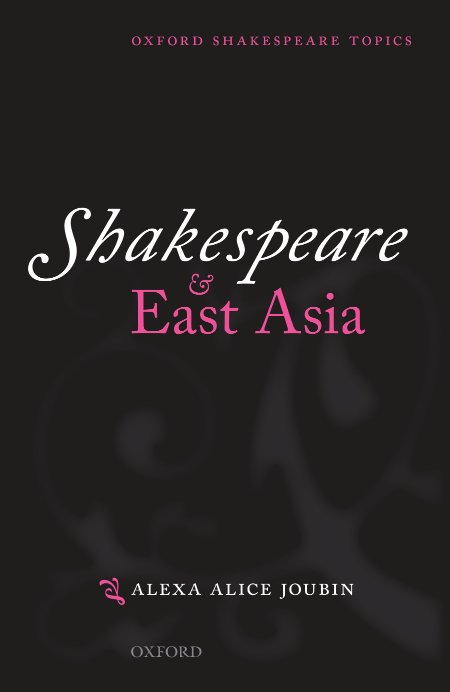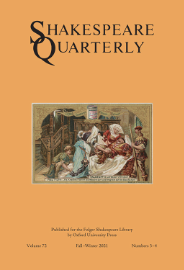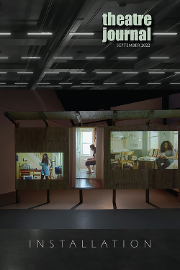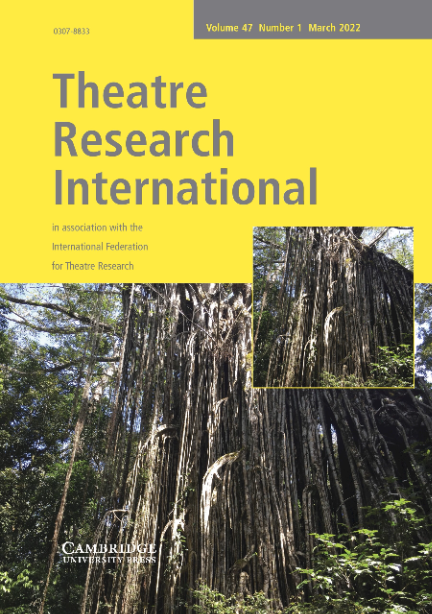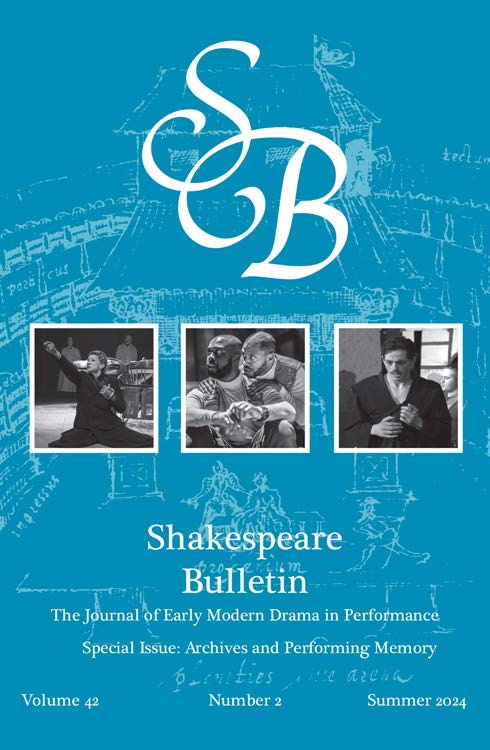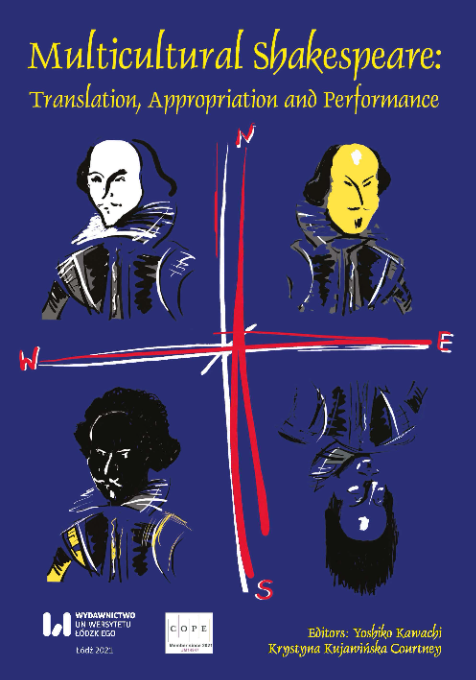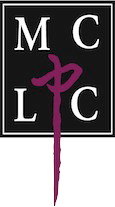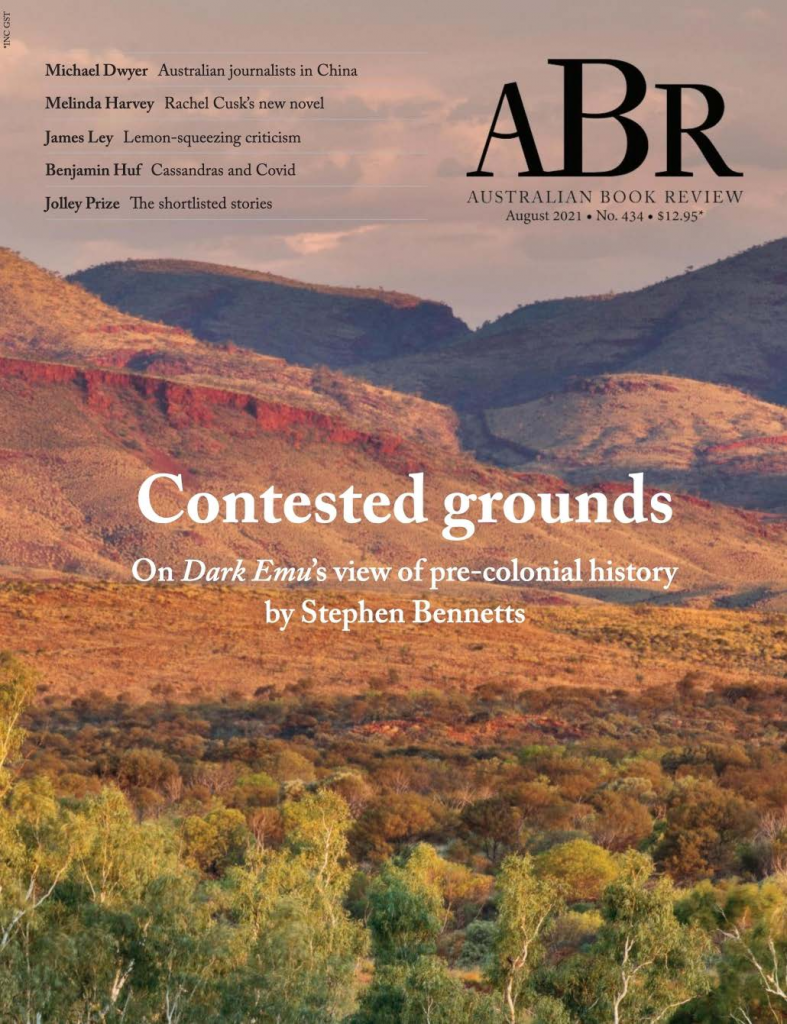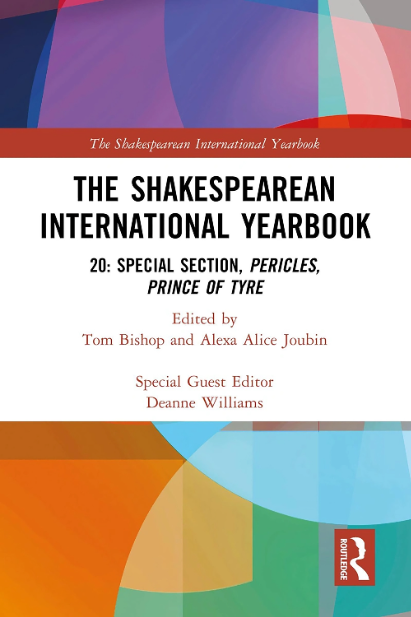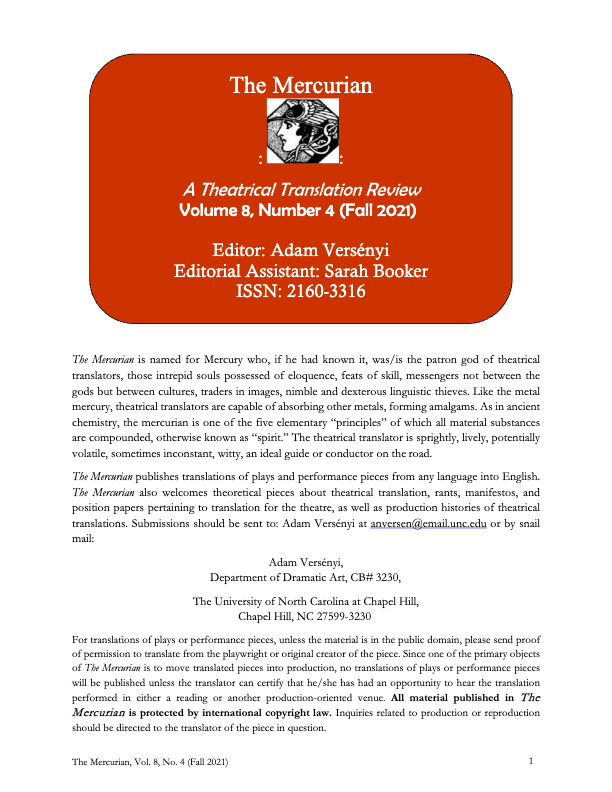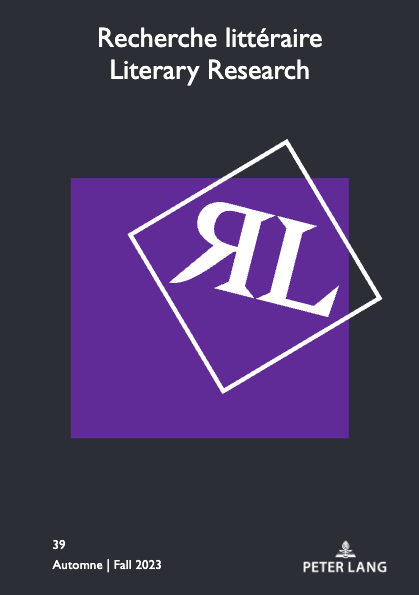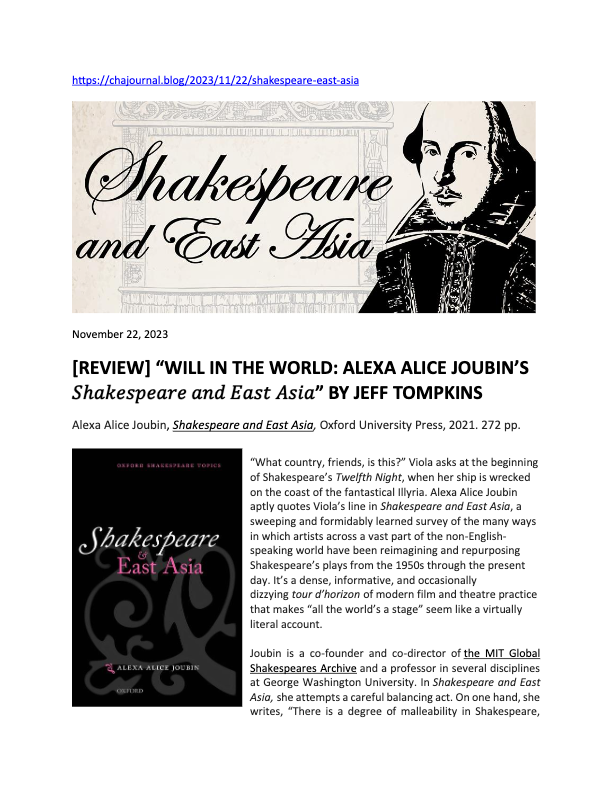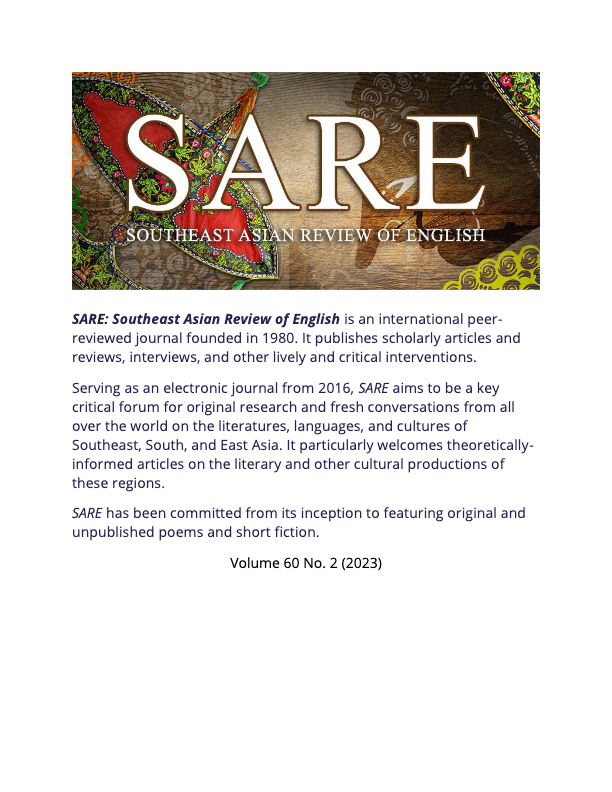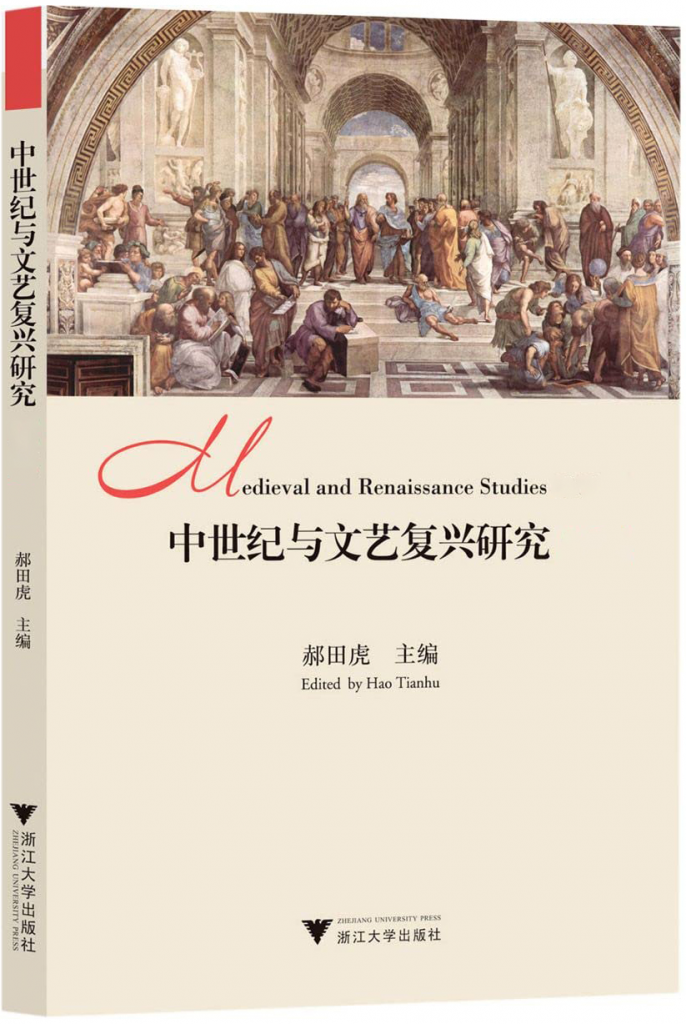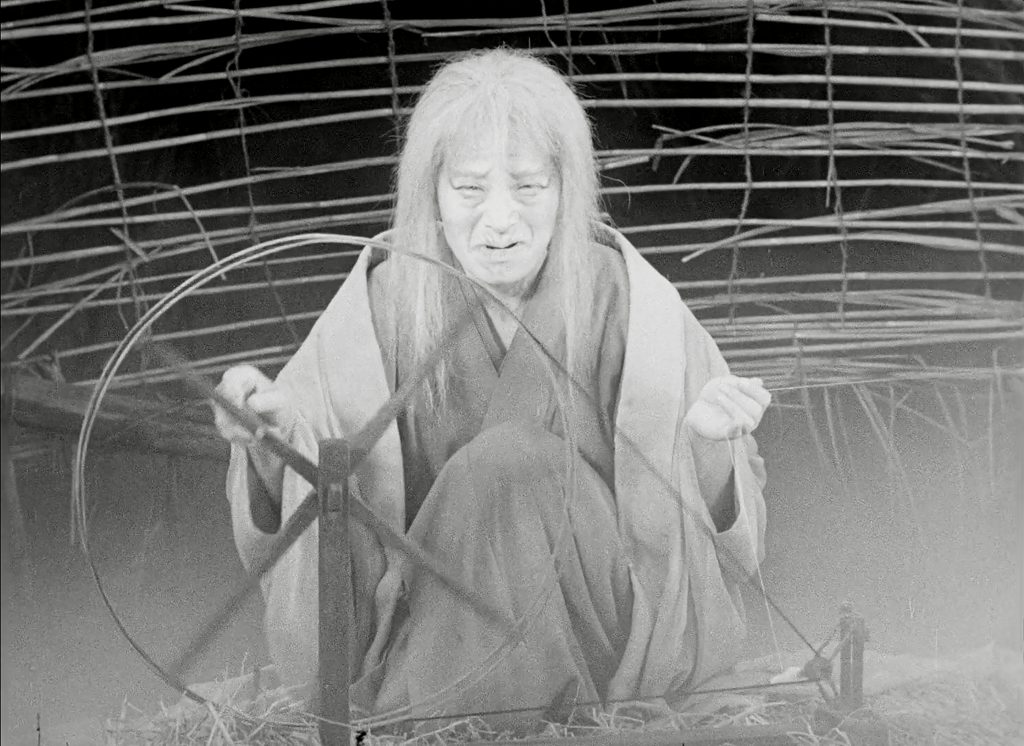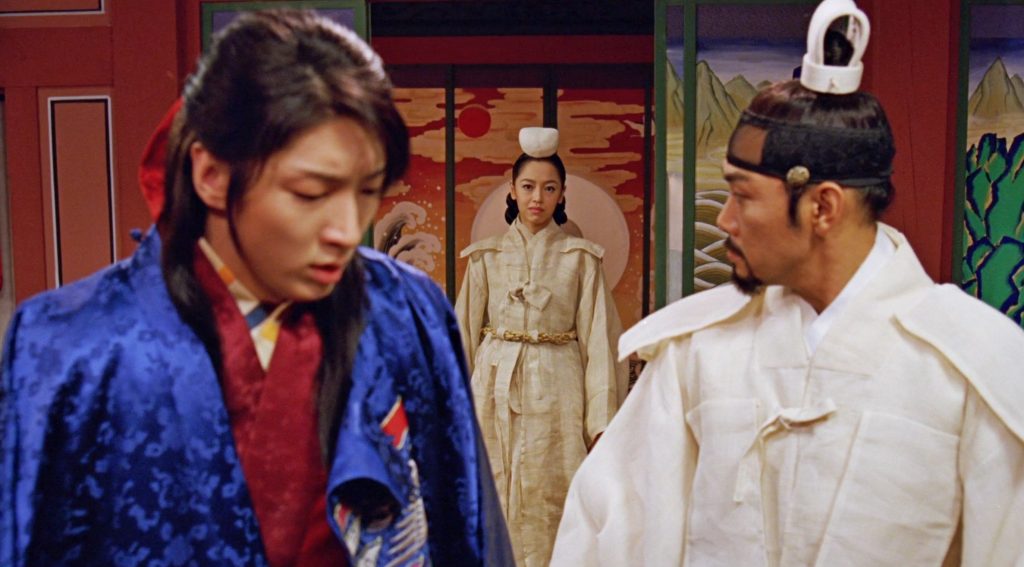Shakespeare and East Asia
Oxford University Press, 2021 ::: ISBN 9780198703570
A sampling of reviews of this book
Sample chapter and useful link
Podcasts and interviews
Book Reviews in Full Text
This webpage about Shakespeare and East Asia © 2024 by Alexa Alice Joubin is licensed under CC BY-NC-SA 4.0
This book tells an incredible story of how, where, and when “Shakespeare” and Asian artists met on stage and on screen. It covers stage and film adaptations that reimagine racial and gender roles, disability, and multilingualism in Japan, China, Taiwan, Hong Kong, South Korea, Singapore, Asian America, and the UK.
How do actors reposition their racialized bodies on stage and on screen? How did Akira Kurosawa influence George Lucas’ Star Wars? Why do critics repeatedly use the adjective Shakespearean to describe Bong Joon-ho’s Parasite (2019)? How do East Asian cinema and theatre portray vocal disability? How do Korean transgender cinema and feminism transform gender identities in Shakespeare?
Bringing film and theatre studies together, this book sheds new light on the two major genres in a comparative context and reveals deep connections among Asian and Anglophone performances.
Four themes distinguish post-1950s East Asian cinemas and theaters from works in other parts of the world: Japanese innovations in sound and spectacle; Sinophone uses of Shakespeare for social reparation; the reception of South Korean presentations of gender identities in film and touring productions; and multilingual, disability, and racial discourses in cinema and diasporic theatre in Asian America, Singapore, and the UK.
— Listen to this New Books Network podcast, an interview with Joubin on her new book
— Read this interview with Joubin about Shakespeare and East Asia and her earlier book, Race.
— Follow the Wikipedia page about Shakespeare and East Asia.
— Listen to this Shakespeare Birthplace Trust (Stratford-upon-Avon) podcast, an interview with Joubin on the political as well as cultural significance of Shakespeare across East Asia.
— Read Joubin’s short essays on Oxford University Press Blog about this book:
- Five themes in Asian Shakespeare adaptations
- Shattering stereotypes of Asian women onstage and onscreen
- Shakespeare Quarterly (Oxford University Press) “The tone is accessible, the scholarship up-to-date, the materials kaleidoscopic, the ideas clearly articulated. Her presentation is admirably linear and lucid. The sign-postings start with an analytic table of contents, which clearly identifies the plays, media and genres, and directors to be discussed in each chapter. Joubin has proposed for us a dazzling itinerary across these unpathed waters, undreamed shores, traversing states unborn and accents yet unknown.”
- Shakespeare Bulletin: “Shakespeare and East Asia is a comprehensive and enlightening work accessible to readers interested in the cultural exchange between the East and the West through performances of Shakespeare in various forms. Equally important, it also serves as an inspiration for future studies on global Shakespeares and their receptions.” PDF full text
- The Mercurian: “Astutely charting shared and unique patterns in post-1950s East Asian adaptations and interpretations of Shakespeare, Alexa Alice Joubin eschews the prevailing and harmful approach to Global Shakespeare that anchors performances in their perceived cultural roots and values them more for their political rather than their aesthetic qualities. Joubin also pushes back against the utilization of Asian Shakespeares for the purposes of diversifying scholarship and curricula in the Anglo-American academy, as well as the exoticization of these adaptations, in particular, the tendency to over-emphasize how much they deviate from Anglophone practices.”
- Theatre Journal (Johns Hopkins University Press)
“Shakespeare and East Asia makes a significant contribution to the field by showing new ways of engaging with foreign Shakespeare from various perspectives, not just as the Other of Anglophone Shakespeare. It also stresses the importance of East Asian cinema hitherto neglected in global Shakespeare studies. Rounded out by a glossary of Asian terms, a chronology that lists key East Asian Shakespeare works alongside historical events, and further reading with up-to-date scholarship, the book will prove an excellent resource for those who are interested in Shakespeare, performance, and East Asian culture.”
- Theatre Research International (Cambridge University Press) “This book sheds new light on films and stage adaptations of Shakespeare, some of which are unknown or unfamiliar, and, most significantly, it reveals deep structural and narratological connections among Asian and anglophone performances. A strength of the book comes from its theoretical astuteness, with the help of women’s, gender and sexuality studies and the application of transgender theory. As a multi-lingual author, she can access a wide range of further readings which have not all been fully studied by Western researchers.”
- Recherche littéraire / Literary Research 2023, the flagship journal of the International Comparative Literature Association (ICLA) — “Joubin makes a case for aesthetic merit to be acknowledged and enjoyed; for multiplicity and play in cultural borrowing to be discerned. Shakespeare thus becomes a mechanism for recognising the global in Asia, and for representing Asias across the globe.”
- The Australian Book Review: “Joubin’s central premise, that disparate Asian adaptations of Shakespeare share common ground in that they all stage collective anxieties around processes of globalisation, is a compelling one. It brings cohesion to her analyses of a varied body of films and theatre productions that bear the dual burden of representing Asia back to an anglophone audience frequently assumed to possess cultural ownership of Shakespeare, as well as of importing the bard as an emblem of Western modernity to viewers within Asia.”
“Joubin ultimately provides a compelling initiation for those seeking a journey into the world of non-anglophone Shakespeares. The forms of cultural diplomacy between Asia and the rest of the world that the Bard both enables and constrains should be the topic of further study, for which Alexa Alice Joubin provides an accessible entry.” - Multicultural Shakespeare, open access “While there have been many books on Shakespeare reception, a distinctive feature of Alexa Alice Joubin’s book is that it eschews cultural profiling—the tendency to bracket, for example, Shakespeare in Japan in isolation from other cultural influences. Joubin’s approach lights the way for future studies that may build on the critical work she has done in tracing these broad networks across borders, cultures and languages.”
- MCLC: Modern Chinese Literature and Culture, open access [PDF]
“This thought-provoking [and] meticulously researched study maps the richness and complexity of East Asian contributions to the rise of global Shakespeare as a prominent genre and offers a renewed and illuminating understanding of the tension between cultural homogenization and heterogenization in global communities. It unsettles assumptions about the stability of Shakespeare as a textual and verbal presence and about Asia as a privileged, unified visual sign. Shakespeare and East Asia is a scholarly masterpiece.” - Cha: An Asian Literary Journal, open access [PDF]
This is “a sweeping and formidably learned survey of the many ways in which artists across a vast part of the non-English-speaking world have been reimagining and repurposing Shakespeare’s plays from the 1950s through the present day. It’s a dense, informative, and occasionally dizzying tour d’horizon of modern film and theatre practice that makes “all the world’s a stage” seem like a virtually literal account.“
- The Shakespearean International Yearbook 20
“Shakespeare and East Asia challenges a prevailing critical tendency to interpret contemporary Asian films and theatrical performances inspired by Shakespeare primarily as geopolitical allegories. Instead, Joubin’s rhizomatic approach seeks to localize and analyze the aesthetic choices made within productions. Eschewing a format that highlights a single Shakespearean play in its variations, Joubin’s chapters are organized conceptually so that most concern a number of Shakespearean plays, genres and theatrical traditions, and contemporary directors.”
- Southeast Asian Review of English 60.2 (2023), open access
“In covering such a broad scope, Joubin creates a sophisticated work, characterised by her inventive interdisciplinary analyses. It makes for a highly engaging work, one that undermines previously held assumptions whilst opening new research possibilities. Joubin’s work presents a comprehensive vision, blending intricate theory with extensive scope. However, Shakespeare and East Asia is far from purely theoretical, with Joubin blending her knowledge of film grammar, theatrical techniques, music, and Asian languages to critically evaluate productions.”
- Medieval and Renaissance Studies 中世紀與文藝復興研究 No. 10 (2024) [PDF]
黄诗芸的研究深得北美学术传统之三昧,强调理论思辨,注重批判意识,自由穿越学科边界。而传统莎学对其的影响也十分显著,重点体现在对文本(演出)的细微把握,以及对多义性的灵活运用上。此外,该书也展现了作者独特的写作风格,包括引人入胜的叙事、优美的文辞和开阔的视野。这些特点不言而喻,读者自然能够感受到。
